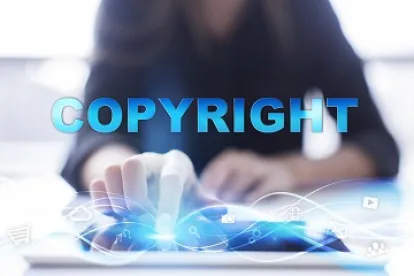Copyright owners seeking damages under $30,000 now have the choice of adjudicating their claims outside of federal court. Passed as part of the December 2020 COVID-19 relief bill, the Copyright Alternative in Small-Claims Enforcement Act of 2019 (“CASE Act”) created an alternative small claims tribunal system that can adjudicate certain copyright infringement claims.
The CASE Act revises the Copyright Act by creating the Copyright Claims Board and a system that may prove to be a more efficient method of resolving copyright infringement claims. With the CASE Act’s passage, copyright owners may now choose to litigate their claims through the United States Copyright Office’s Copyright Claims Board instead of through the federal court system. The Copyright Claims Board acts as a small claims tribunal that adjudicates copyright infringement claims and awards limited damages of no more than $15,000 per claim and $30,000 total in a single proceeding.
Participation in the Copyright Claims Board system is voluntary and defendants may still choose to resolve their dispute in federal court. This option may be particularly important to some defendants, as parties who choose to resolve their claims through the Copyright Claims Board waive their right to a jury trial and formal motion practice.
The Copyright Claims Board’s scope is limited to Section 106 or 512(f) claims, meaning that it can only hear certain copyright infringement claims such as actions for declaration of non-infringement, claims that a party sent false take-down notices, related counterclaims, and other claims within these Sections. The Copyright Claims Board consists of a three-judge panel that may conduct proceedings that involve discovery, hearings, and awards of damages and other relief. Similar to federal courts, the Copyright Claims Board must issue written decisions that include an explanation of the factual and legal basis of the determination.
There are some interesting caveats within the CASE Act system. For example, although the Copyright Claims Board sits within Washington, D.C., the Copyright Claims Board must follow the law in the federal jurisdiction in which the action could have been brought if filed in federal court. Another is that Copyright Claims Board decisions are not precedential before any tribunal, including the Copyright Claims Board itself. Additionally, the Copyright Claims Board’s decision is final and there is limited review of decisions available. After exhausting request for reconsideration or review with the Copyright Claims Board and the Register of Copyrights, the party may only challenge the Copyright Claims Board’s decision within 90 days and only in very limited circumstances.
The CASE Act’s new small-claims tribunal system should provide a less expensive and more efficient process of resolving copyright infringement claims than has been available in the past. However, only time will tell whether defendants will agree to litigate through the Copyright Claims Board.





 />i
/>i

